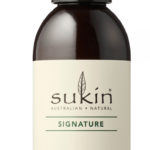Suffering from dry, itchy, irritated skin is never a pleasant scenario. However, if this is a regular occurrence for you, there’s a high chance you may be suffering from eczema.
Don’t know much about eczema? We’ve got you. Below you’ll find everything you need to know about this common skin condition, as well as how to effectively keep it under control, because knowledge truly is power when it comes to treating this issue.
10 THINGS YOU NEED TO KNOW ABOUT ECZEMA
#1. Eczema is the general term for any type of dermatitis.
It is also called atopic dermatitis, and often refers to any type of inflammation of the skin, too. This is because those who suffer from eczema often experience a number of different skin conditions all at once, such as swollen, dry, irritated and itchy skin.
#2. Eczema often develops when you’re a child.
“Most people (90 per cent) develop atopic dermatitis before age five,” says Emma Hobson, Education Manager for the International Dermal Institute and Dermalogica. “It’s also estimated that it affects at least one to three per cent of adults and 10-20 per cent of children in industrialised countries.”
#3. Eczema is not contagious.
“Atopic dermatitis is not contagious, so there is no need to worry about catching it or giving it to someone,” explains Emma. “Atopic eczema is a multifactorial and complex disease that involves the innate and adaptive immune systems, genetics, environmental factors, and even lifestyle.” However, this skin condition does tend to run in families, and often affects those who also have asthma or are affected by hay fever and allergies.
#4. Eczema has a number of different symptoms.
If you suffer from any of the following, it’s likely you have atopic eczema: moderate to severe itching skin; recurring rashes (most commonly found on the face, hands, neck, inner elbows, ankles and back of the knees) that result in dry, red, patchy or cracked skin; skin that weeps a watery fluid; leathery, rough, thick skin; and lesions that are infected by bacteria.
#5. The exact cause of eczema is unknown.
However, it is linked to many internal and external factors that fuel the condition. Internal factors include a family history of eczema, asthma or hay fever, some foods (most notably dairy and wheat products, citrus fruits, eggs, nuts, seafood, chemical food additives, preservatives and colourings), alcohol, and stress. External factors consist of irritants (tobacco smoke, chemicals, weather, and air conditioned environments) and allergens (dust mites, mould, grass, plant pollen, food, pets, soap, shampoo, washing powders, cosmetics and other toiletries).
#6. There is no known cure for eczema.
Emma says: “Although we can’t cure eczema, we can provide the education and treatments that can control the signs and symptoms of this potentially life-disruptive disorder. Because of the complexity of this disease, it may be necessary to treat the whole body, and not just the skin.” This means eczema suffers should also look into holistic therapies like reflexology, acupressure and aromatherapy.
#7. There are certain things eczema sufferers should avoid.
Emma recommends steering clear of the following items in order to help protect the vulnerable barrier of your skin and prevent further irritation: artificial fragrances, alcohol, scrubs or any exfoliant that uses friction, glycolic acid, products that are alkaline like soap and shaving foams, and highly active products that stimulate the skin. Avoid chemical sunscreens, too. Emma says physical sunscreens are best for an irritated, sensitised skin, and she recommends using a product that contains titanium dioxide and zinc oxide.
bh loves: Invisible Zinc Face + Body Sunscreen
#8. There are certain things you can do to avoid an outbreak.
Keeping your skin moist by apply a hydrating cream can help avoid an irritating outbreak, however, it’s also wise to wear fabrics that are soft or 100 per cent cotton; have lukewarm showers and baths; gently pat your skin dry after bathing; avoid rapid changes in temperature; limit rugs and carpeted areas in your home; change your bed linen regularly and use dust mite prevention covers; reduce your stress levels; and pay attention to what triggers your eczema so you can avoid them in the future.
#9. There are many ingredients that treat eczema-prone skin with care.
Look for products that contain the following ingredients, as they aim to repair the skin barrier and reduce inflammation: oatmeal, evening primrose, avocado, sea buckthorn oil, borage oil, lactic acid, ginger, chamomile, liquorice, lavender, and raspberry.
bh loves: Covitol and LANATÉ Cream
#10. Eczema sufferers should keep their skin care regimen simple.
Limiting the number of products you use will reduce the possibility of a reaction and help prevent your skin from becoming even more sensitised. Look for nourishing moisturisers that are free of fragrance and other known irritants, and opt for creamy cleansers with non-abrasive particles. These types of cleansers will boost your skin’s hydration levels, as well as help combat any dry or sore areas, says Nichola Joss, celebrity facialist and Sanctuary Spa skin care expert.
bh loves:Sukin Naturals Cream Cleanser and JooMo Face Wash
Do you suffer from eczema? What are your tips for controlling skin dryness and irritation?








I’ve had my fair share of skin problems , but I feel fortunate to have never suffered from eczema.
I only started getting eczema in my early 20s. It’s definitely very annoying when I have flare ups.
It’s obvious some patients with herpes are being enslaved to the antiviral and other supplementary Orthodox medicine just to help suppress the virus and not a cure. I have been with the virus since 8 months until I was introduced by a friend who also shared her story online on how she was cured from Genital Herpes after using Dr Oosa herbal remedy. I recently got cured from my herpes virus. All thanks to God for using this Great and sincere Herbal Man called Dr Oosa to get me cured from the Virus. I have promised to keep telling good things about Dr Oosa. Please feel free to share Your problems with him. I want you to contact Dr Oosa on: doctoroosaherbalhome.org@gmail.com or info.droosa.org@gmail.com, whatsapp him on +1613-703-9066. and you can also Whatsapp him via +1613-703-9066
Doctor Oosa can also have the cure for the following
CANCER
HEPATITIS ALL KINDS
HSV 1&2
DIABETES
IDIOPATHIC PULMONARY FIBROSIS (IPF)
HIV
EPILEPSY
GONORRHEA
ASTHMA
PREGNANCY ISSUES
HEART DISEASES
KIDNEY DISEASES
LIVER DISEASES
AUTISM
PNEUMONIA
DEPRESSION AND ANXIETY
DR OOSA IS SPECIAL IN REUNITING BROKEN MARRIAGES AND
RELATIONSHIP HIS THE HELP OF HIS SPELL CAST. HE USES SPELL TO BRING
BACK EX’s.
A couple of months ago I was diagnosed with eczema by my GP with instructions to use Dove soap for the PH balance and prescribed Advantan cream. Since the diagnosis I have been researching products that can help and what I can do and your article is very helpful.
Will definitely getting tested.
I am trying Aveeno Dermexa balm and Aveeno Dermexa shower lotion as I have only just started, I dont have results yet.
Definitely taken note of some of the feedback from members.
Thanks for the article and the comments.
herbal mixture Can herpes be cured? Yes, So many people believe that herpes has no cure, so scientists and doctors say that the virus is beyond medical care, but that not all true herbs has proving science wrong, herpes has cure and the herbal medicine are 100 %guarantee with no side effects I was cure form 6years herpes virus with the use of Dr Eromo herbal medicine. He can also cure
Fibroid
Hiv
Penins Enlargment
Diabetes etc Save life’s today by sharing this testimony
you can contact him whatsaap : +2348088220147 or Email : dr.eromo1@gmail.com
Mine exploded when I was late 20s. It started with patches on my face then spread to my body. I suffered for a year and tried everything under the moon. Lucky for me, the herbalist managed to help!